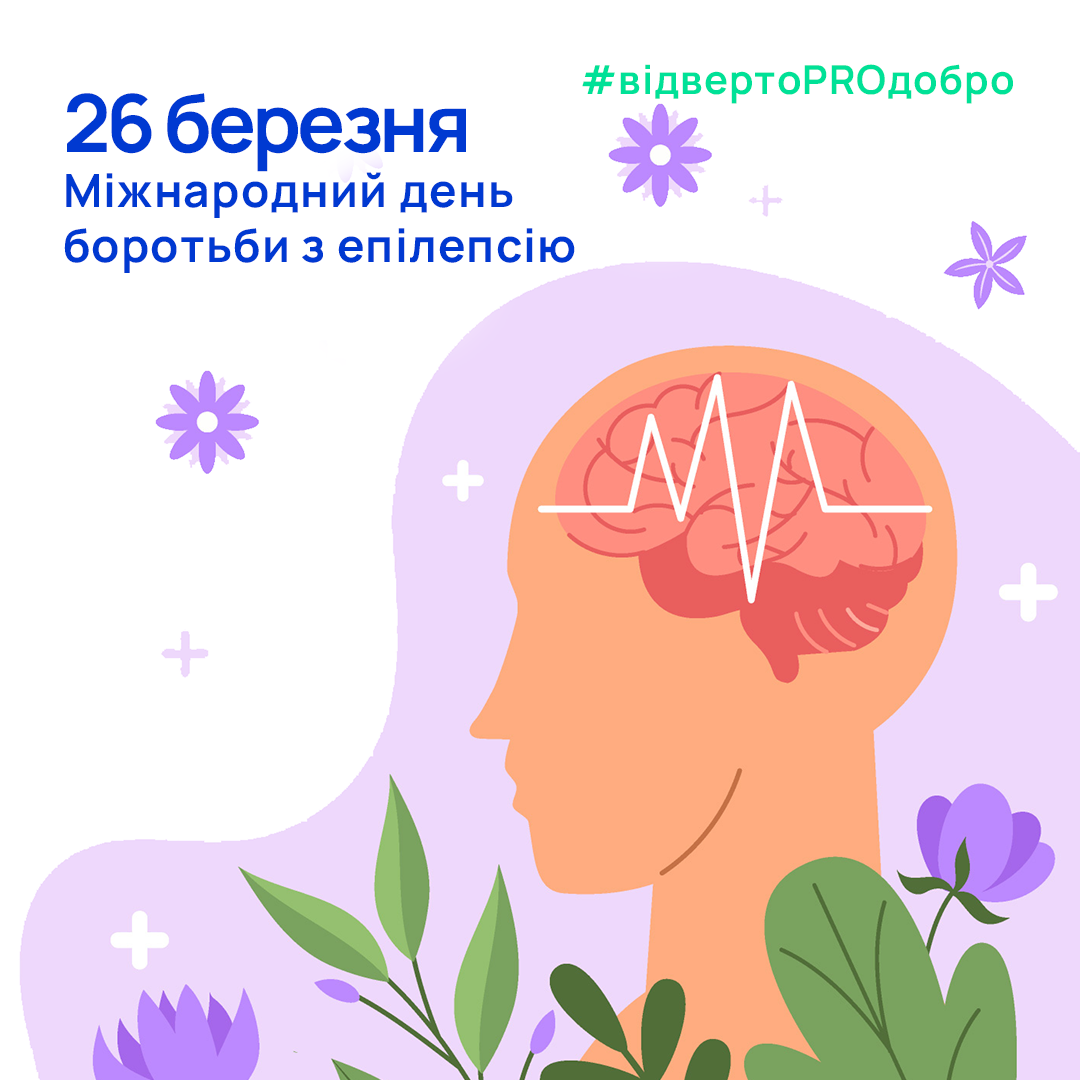MARCH 26 IS INTERNATIONAL EPILEPSY DAY. HOW NOT TO HARM? TOP-12 MYTHS ABOUT THIS DISORDER
Every year on March 26, the so-called "Purple Day" is held in many countries around the world, an international event aimed at raising awareness of epilepsy. Epilepsy is considered one of the most common chronic neurological diseases of humans. It is a chronic brain disorder characterized by recurrent seizures.

- During a seizure, a person with epilepsy may swallow their tongue.
This statement in general is absurd and can sound only from a person who is completely unfamiliar with human anatomy. It is physically impossible to swallow the tongue. - It is necessary to put something in the mouth of a person who is experiencing an epileptic attack.
This should not be done in any case! You will not help, but only harm - in this way, you can easily knock out teeth or even break a person's jaw. Correct first aid is simple: carefully turn the person on his side and put something soft under his head to protect him from injury. - A person with convulsions should be restrained.
You should not try to fix a person with an attack! The convulsions will still continue and you won't be able to stop them. - Epilepsy is contagious.
That is one of the most common fakes about this disorder. You cannot catch epilepsy from another person. - Only children get epilepsy.
Epilepsy can occur in people over the age of 65 almost as often as in children aged 10 and under. Seizures in the elderly are often the result of other health problems, such as stroke or cardiovascular disease. - People with epilepsy are disabled and cannot work.
People with this condition have the same range of abilities and intelligence as others. Some have severe seizures and are unable to work, while others are successful and productive in their workplace. - People with epilepsy should not hold positions of responsibility that involve stress.
People with convulsions work in all areas and at all levels of business, government positions, and have creative professions. We don't always know about them because many people don't talk about epilepsy for fear of what others think. - With the help of modern drugs, epilepsy is a solved problem.
In fact, epilepsy is a chronic medical problem that many people manage successfully. But unfortunately, treatment does not work for everyone, and there is a critical need for more research. - Seizures always require emergency medical attention and you should always call an ambulance.
In fact, seizures are often not a medical emergency, and emergency care is not always necessary. You should call an ambulance if:
- the attack lasts five minutes or longer;
- attacks are repeated one after the other without the person regaining consciousness between them;
- this is the first seizure attack;
- a person was injured during a seizure (for example, a fall);
- convulsions occur in water;
- a person is pregnant or suffering from diabetes. - You cannot die from epilepsy.
Epilepsy can still be a very serious condition and cause death. According to experts, prolonged convulsions are the cause of many deaths in Ukraine every year. - You cannot predict what a person may do during a seizure.
Seizures usually take a characteristic form and the person will do very similar things during each episode. The behavior of such a person may be unacceptable in some cases, but it is unlikely to harm anyone. - People with epilepsy are physically disabled.
In most cases, epilepsy is not a hindrance to physical activities, although some people suffer more seriously and their abilities may be physically limited.
As you can see, most stereotypes about epilepsy and people with epilepsy are false, biased and inaccurate. Dissemination of up-to-date truthful and medically based information about epilepsy is an extremely useful initiative. This simple knowledge can come in handy anywhere and anytime, and maybe even save someone's life. Be attentive to your fellow citizens and others!
Yulia Burdylenko was finally operated on!
In the meantime, the wards of the Exchange continue to diligently acquire new skills at planned rehabilitation courses
We share good news about Vadym Yatsenko!
Do you have a project?
WRITE US